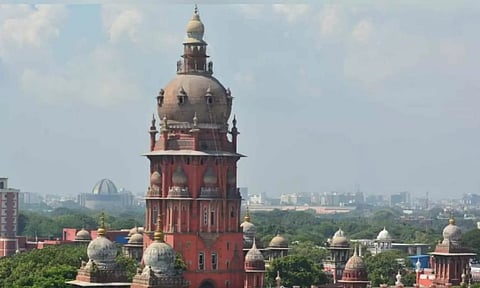

CHENNAI: The Madras High Court observed that it is unfortunate, nay, dismay that the truly deserving persons of their rights guaranteed under the Constitution are depriving due to certain unscrupulous elements indulging in producing false certificates for the purpose of seeking employment and education.
It also opened that no wonder that the dream of Ambedkar, of achieving the goal of a casteless and classless society 50 years ago still remains a dream.
A division bench of the Madras High Court (MHC) comprising Justice J Nisha Banu and Justice N Mala gave a split verdict with two different angles of observations in a case validating the community certificate.
A petitioner V Perumal moved the MHC seeking to quash an order, in 2020 canceling his Scheduled Tribe (ST) community certificate issued by the Adi Dravidar and Tribal Welfare (ADTW) department as the certificate is false.
According to the petitioner, he joined the Bank of Baroda in the year 1989, under the reservation category, earmarked for (ST) Katunayaka's community.
After he attained superannuation in 2018, the terminal benefits including pension, leave encashment, commutation, etc., were not paid, said the petitioner.
The bank is not settling the petitioner's due retirement benefits including pension as the state-level committee of ADTW found his community certificate submitted during his employment was false.
The committee found that he belonged to the Ottar community and not the Kattunayakan community.
After the perusal of the submissions, Justice Nisha Banu cited the Supreme Court's judgment in Kumari Madhuri Patil's case and the memorandum issued by the Parliamentary Committee on the welfare of scheduled Castes and Scheduled Tribes that stipulates 1995 as the cut-off date from which verification process to check the veracity of the caste certificates of candidates availing reservations.
The judge observed that the petitioner's appointment was before 1995, and it is not open for the Union or State government and public sector undertakings to deny continuous employment or post-retirement benefits based on a post facto finding of falsity of claims or doubtful caste/community certificates presented at the time of appointments.
Hence, the judge allowed the petition and directed the bank to pay all retirement benefits that accrue to the petitioner, within a period of eight weeks.
However, Justice Mala took up a different angle and differed from the verdict given by Justice Nisha Banu. Justice Mala observed that interpretation of the memorandum as if it debars the scrutiny committees from verifying the genuineness of ST certificates issued before 1995 would be absurd and unreasonable as such an interpretation will be putting a premium on fraud. It would be like saying that any fraud that was committed before 1995 could be ignored and only fraud committed after 1995 could be brought to book, observed the judge.
The conduct of the petitioner is suspicious therefore the cancellation of the petitioner's certificate is justified and the same is confirmed, observed by the judge.
The constitutional provisions and the scheme of reservation for the backward classes and the scheduled caste and scheduled tribe were meant to achieve the goal of equality, where all people irrespective of their religion, caste, and sex would be treated equally with respect, dignity, and honour. It is unfortunate, nay, dismaying that certain unscrupulous elements indulge in producing false certificates for the purpose of seeking employment and education, thus depriving the truly deserving persons of their rights guaranteed under the constitution, observed the judge.